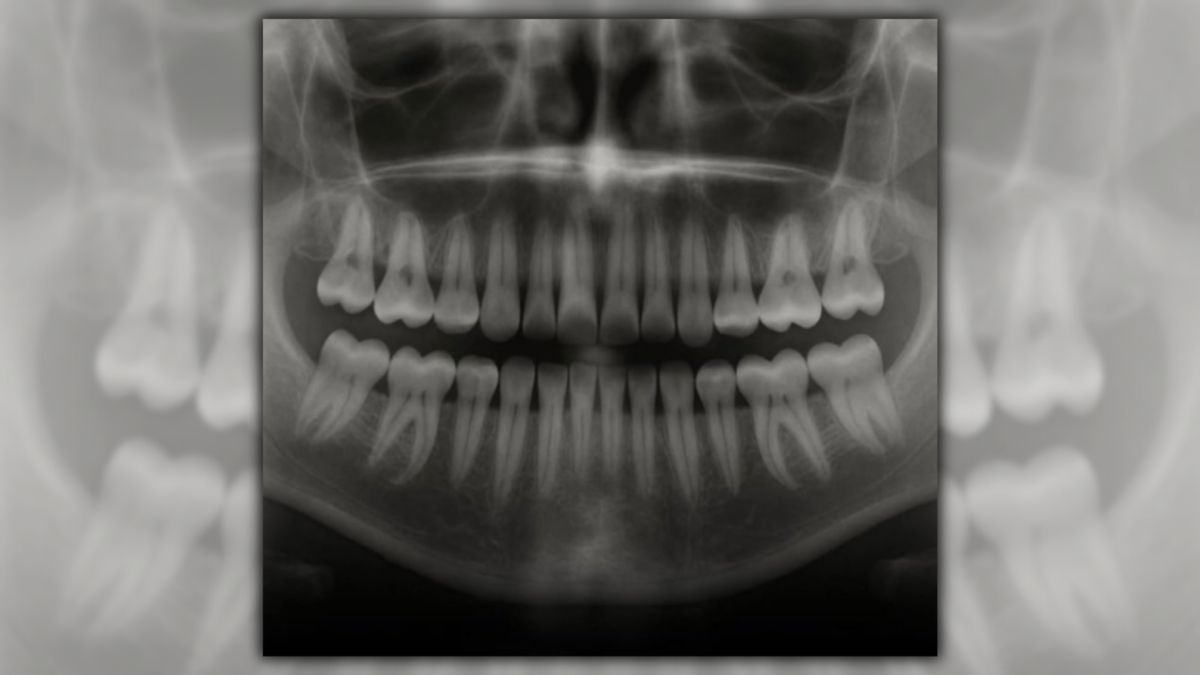Claim:
Japanese researchers have developed a drug that could help people grow new teeth.
Rating:
Rating: True
Context:
There are specific conditions that need to be met for the drug to regrow teeth — it might not spontaneously grow new teeth in just any person who takes it.
A rumor has circulated online since at least 2024 claiming that Japanese researchers have developed a drug that might help people grow new teeth after proving its effectiveness in mice. The drug allegedly reactivates extra “tooth buds” present in the mouths of most people.
The claim appeared on social media platforms including Facebook (archived) and Reddit (archived). One X post (archived) included an apparent X-ray of a person’s mouth with the caption, “Japan trials new drug that regrows human teeth — ending dentures and implants forever!”
Multiple peer-reviewed journals have published papers on a drug that could potentially cause new teeth to grow. As such, we have rated the claim as true. It is important to note, though, that there are specific conditions that need to be met for the drug to regrow teeth — it might not spontaneously grow new teeth in just any person who takes it.
Scientific Reports published a paper, “Local application of Usag-1 siRNA can promote tooth regeneration in Runx2-deficient mice,” in 2021 outlining the development of a drug that could grow new teeth. Researchers from Japan found a protein — uterine sensitization-associated gene-1 (Usag-1) — that prevented the growth of new teeth in mice with underdeveloped teeth. They found that blocking the protein “promoted tooth development” in the rats, and concluded that this process “[showed] potential for future clinical applications aimed at treating [humans] with congenital tooth agenesis.” Congenital means at birth, and tooth agenesis means teeth that never developed.
Many researchers from the Scientific Reports paper later contributed to a follow-up published in the journal Regenerative Therapy, titled “Advances in tooth agenesis and tooth regeneration.” This new paper highlighted advancements in tooth-regeneration research and the potential applications of the research for “patients who will benefit from tooth regeneration.” It also revealed the presence of “third dentition,” or a potential third set of teeth, that could grow in as a result of the inhibition of the Usag-1 protein.
The journal Inflammation and Regeneration published a paper, also with some of the same authors, that defined third dentition as an “opinion” in the following excerpt:
The term “third dentition” refers to the opinion that one more set of teeth can occur in addition to the permanent teeth. The third dentition begins to develop when the second successional lamina is formed from the developing permanent tooth in humans and usually regresses apoptotically [through programmed cell death] like the rudimental incisor of the mouse.
Katsu Takahashi, associate professor at Kyoto University and contributor to all three papers, co-founded Toregem BioPharma, a Japanese biopharmaceutical company conducting clinical trials of the drug on humans. We reached out to Toregem BioPharma and Takahashi for more information about the drug and clinical trials and will update this story if we receive a response.
For further reading, Snopes investigated images that circulated on social media depicting a set of X-rays taken of a person who allegedly had 81 teeth due to a condition called “hyperdontia.”
Sources:
“Inflammation and Regeneration.” BioMed Central, https://inflammregen.biomedcentral.com/.
“Journals.” JSRM, https://en.jsrm.jp/about-us/journals/.
Kramer, William. “Real X-Rays of Person with 81 Teeth?” Snopes, 23 Sep. 2025, https://www.snopes.com//fact-check/x-rays-81-teeth/.
KYOTO UNIVERSITY. 14 Oct. 2025, https://www.kyoto-u.ac.jp/en.
Mishima, Sayaka, et al. “Local Application of Usag-1 siRNA Can Promote Tooth Regeneration in Runx2-Deficient Mice.” Scientific Reports, vol. 11, no. 1, Jul. 2021, p. 13674. www.nature.com, https://doi.org/10.1038/s41598-021-93256-y.
Peer-Review Policies | Scientific Reports. https://www.nature.com/srep/journal-policies/peer-review.
Ravi, V., et al. “Advances in Tooth Agenesis and Tooth Regeneration.” Regenerative Therapy, vol. 22, Mar. 2023, pp. 160–68. ScienceDirect, https://doi.org/10.1016/j.reth.2023.01.004.
“Scientific Reports.” Nature, 15 Oct. 2025, https://www.nature.com/srep/.
Takahashi, Katsu, et al. “Development of Tooth Regenerative Medicine Strategies by Controlling the Number of Teeth Using Targeted Molecular Therapy.” Inflammation and Regeneration, vol. 40, Sep. 2020, p. 21. PubMed Central, https://doi.org/10.1186/s41232-020-00130-x.
“Tooth Agenesis: Causes & Treatment.” Cleveland Clinic, https://my.clevelandclinic.org/health/diseases/24322-tooth-agenesis.
Toregem BioPharma Co., Ltd. – For the Realization of a Society Where People Are Not Afraid of Losing Their Teeth. https://toregem.co.jp/en/.
“What Is Apoptosis?” Cleveland Clinic, https://my.clevelandclinic.org/health/articles/apoptosis.


